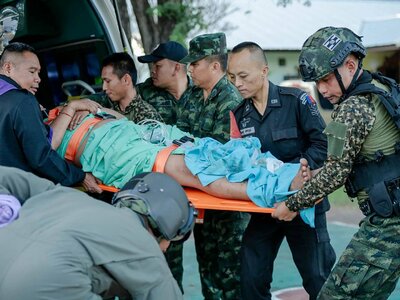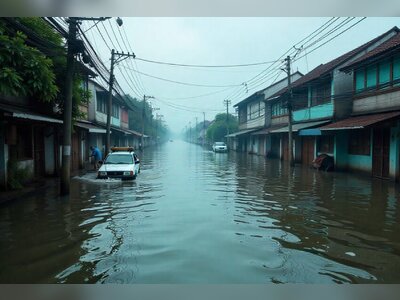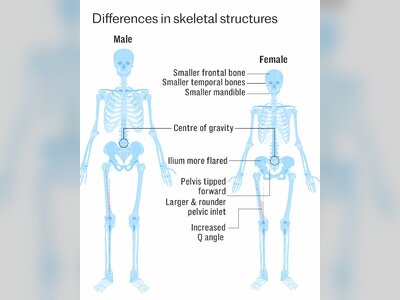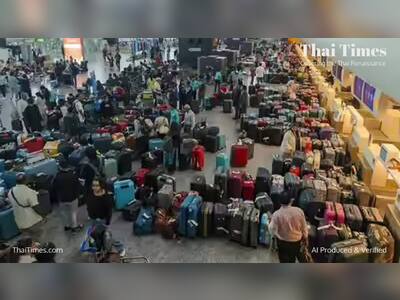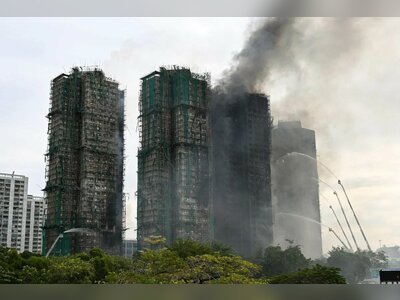Thailand and Cambodia Convene Joint Boundary Commission Amid Rising Border Tensions
Phnom Penh hosts June 14 meeting following May 28 clash; Cambodia excludes four disputed areas now before ICJ
On June 14, 2025, Thailand and Cambodia convened the sixth meeting of their Joint Boundary Commission (JBC) in Phnom Penh, aiming to address longstanding border demarcation issues.
The meeting followed a fatal skirmish on May 28 near Morakot village in Cambodia's Preah Vihear province, resulting in the death of a Cambodian soldier.
The JBC, established under a 2000 Memorandum of Understanding (MoU), serves as the primary bilateral mechanism for surveying and demarcating the 820-kilometer land boundary between the two nations.
The commission had not met since 2012.
Cambodia confirmed its participation in the meeting but excluded four contentious sites—Mom Bei, Ta Moan Thom, Ta Moan Tauch, and Ta Krabei temples—from the agenda, having formally referred these areas to the International Court of Justice (ICJ) on June 2.
Thailand has expressed a preference for resolving disputes through bilateral mechanisms and does not recognize the ICJ's jurisdiction in this matter.
In the lead-up to the meeting, both countries engaged in reciprocal measures affecting bilateral relations.
Thailand threatened to close border crossings and cut off electricity supplies to Cambodia, while Cambodia responded by banning Thai movies and TV shows and rerouting internet traffic to avoid Thai networks.
Despite these tensions, both governments have reiterated their commitment to peaceful resolution.
Thai Prime Minister Paetongtarn Shinawatra emphasized the importance of dialogue, stating that the government hopes to use the JBC platform to resolve the situation peacefully.
Cambodian Prime Minister Hun Manet affirmed his country's commitment to resolving border issues through technical mechanisms and in accordance with international law.
The JBC meeting focused on technical aspects of border demarcation, excluding areas currently under ICJ consideration.
Both sides agreed to reposition troops to previously agreed-upon border positions to alleviate tensions.
Further discussions are expected to continue through existing bilateral mechanisms, including the General Border Committee and the Regional Border Committee.
The meeting followed a fatal skirmish on May 28 near Morakot village in Cambodia's Preah Vihear province, resulting in the death of a Cambodian soldier.
The JBC, established under a 2000 Memorandum of Understanding (MoU), serves as the primary bilateral mechanism for surveying and demarcating the 820-kilometer land boundary between the two nations.
The commission had not met since 2012.
Cambodia confirmed its participation in the meeting but excluded four contentious sites—Mom Bei, Ta Moan Thom, Ta Moan Tauch, and Ta Krabei temples—from the agenda, having formally referred these areas to the International Court of Justice (ICJ) on June 2.
Thailand has expressed a preference for resolving disputes through bilateral mechanisms and does not recognize the ICJ's jurisdiction in this matter.
In the lead-up to the meeting, both countries engaged in reciprocal measures affecting bilateral relations.
Thailand threatened to close border crossings and cut off electricity supplies to Cambodia, while Cambodia responded by banning Thai movies and TV shows and rerouting internet traffic to avoid Thai networks.
Despite these tensions, both governments have reiterated their commitment to peaceful resolution.
Thai Prime Minister Paetongtarn Shinawatra emphasized the importance of dialogue, stating that the government hopes to use the JBC platform to resolve the situation peacefully.
Cambodian Prime Minister Hun Manet affirmed his country's commitment to resolving border issues through technical mechanisms and in accordance with international law.
The JBC meeting focused on technical aspects of border demarcation, excluding areas currently under ICJ consideration.
Both sides agreed to reposition troops to previously agreed-upon border positions to alleviate tensions.
Further discussions are expected to continue through existing bilateral mechanisms, including the General Border Committee and the Regional Border Committee.
